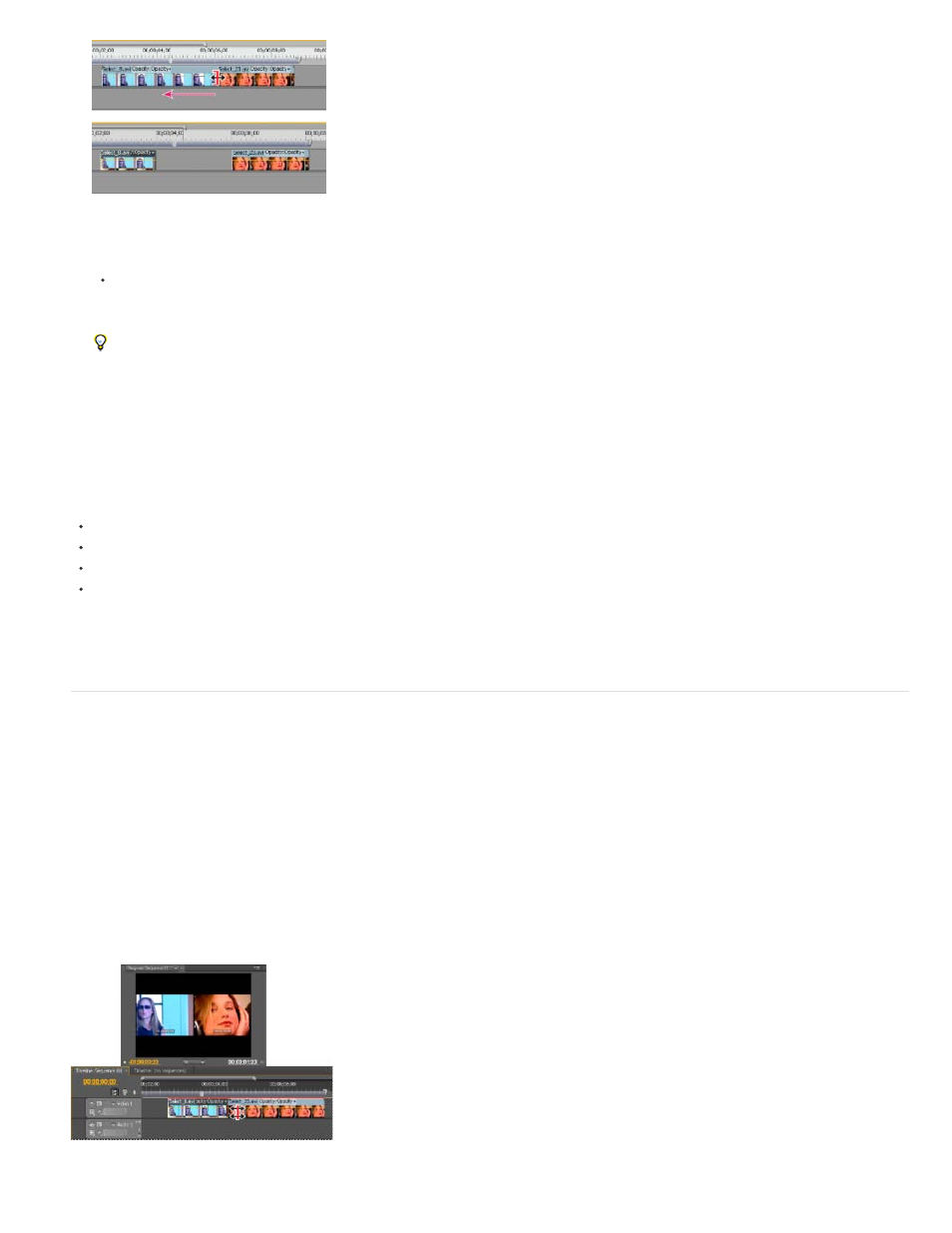Trim with the playhead, Making ripple and rolling edits in the timeline, About ripple and rolling edits – Adobe Premiere Pro CC v.7.xx User Manual
Page 252

Note:
Trimming a clip
Trimming in this way affects only a single clip's edit point and doesn’t affect adjacent clips. As you trim with the Selection tool, a gap in
the Timeline is left behind. To trim multiple edit points at once or to shift adjacent clips, see
Making ripple and rolling edits in the Timeline
.
Press Ctrl (Windows) or Command (Mac OS) using the Selection tool to switch to the Ripple Edit tool.
To trim only one track of a linked clip, press Alt (Windows) or Option (Mac OS) as you click with a Trim icon. You do not need to hold
down the Alt (Windows) or Option (Mac OS) key once you initiate the trim.
Trim with the playhead
You can trim a clip in a sequence to the location of the playhead. However, set up these keyboard shortcuts to do so first:
Trim In Point To Playhead
Trim Out Point To Playhead
Select Nearest Edit Point as Trim In
Select Nearest Edit Point as Trim Out
To set keyboard commands for trimming, see Customize or load keyboard shortcuts.
Making ripple and rolling edits in the Timeline
In Premiere Pro, you can perform a ripple or rolling edit directly on the tracks in the Timeline, using Trim mode, or the Trim Monitor.
About ripple and rolling edits
When you want to adjust the cut, or edit point, between two clips, use variations of simple trimming known as ripple edits and rolling edits. By
using specialized tools, make adjustments in a single action that would otherwise require multiple steps to accomplish. When you perform ripple
and rolling edits with trim tools, the affected frames appear in the Program Monitor side by side. Keyboard shortcuts are available for ripple and
rolling edits. Furthermore, the edit point is selected when you click it with a Ripple Edit or Rolling Edit tool.
Program Monitor and Timeline during a rolling edit
255
